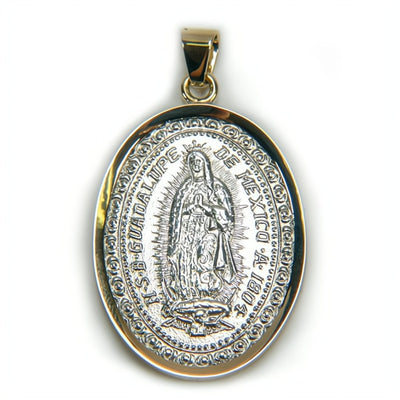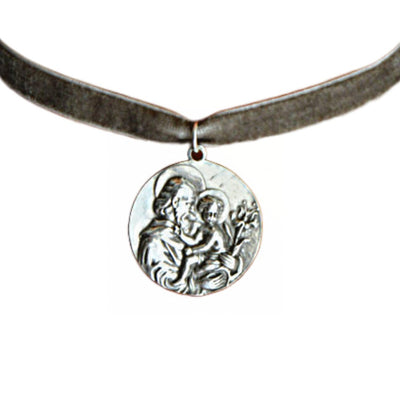When Was Notre Dame Built? A Deep Dive into Its Gothic Origins
Listen - Produced by Notebook LM using AI
Introduction
Standing proudly on the Île de la Cité in the heart of Paris, Notre Dame Cathedral has been one of the most iconic structures in Catholic and architectural history. Known for its majestic Gothic style, stunning rose windows, and historical significance, Notre Dame has inspired millions of visitors for over 800 years.
But when was Notre Dame de Paris built? What led to its construction, and why is it considered a masterpiece of medieval architecture? This article delves into the origins of Notre Dame, its significance in Catholic history, and its enduring legacy.
When Was Notre Dame Built?
Construction Timeline: From Vision to Reality
The construction of Notre Dame Cathedral began in 1163 AD during the reign of King Louis VII and under the leadership of Bishop Maurice de Sully. The foundation stone was laid by Pope Alexander III, marking the beginning of a project that would take nearly two centuries to complete.
Here’s a breakdown of the key construction phases:
📌 1163-1182: The choir and eastern end were completed and used for religious services.
📌 1182-1250: The nave and western façade, including the famous twin towers, were constructed.
📌 1250-1345: The rose windows, flying buttresses, and sculptures were finalized, marking the official completion of Notre Dame in 1345 AD.
Although completed in the 14th Century, the cathedral has been modified and restored numerous times, with significant renovations in the 19th and 21st centuries.
Why Was Notre Dame Built?
Notre Dame was constructed as part of the Catholic Church’s vision to create a grand house of worship that would inspire faith and demonstrate the power and presence of Christianity in medieval France.
Religious and Cultural Significance
✨ A Center of Catholic Worship – Notre Dame has hosted critical religious ceremonies, including coronations, royal weddings, and state funerals.
✨ A Masterpiece of Gothic Architecture – Its intricate flying buttresses, ribbed vaults, and stained glass windows set new architectural standards.
✨ A Symbol of Paris – Throughout history, Notre Dame has represented the soul of France, surviving revolutions, wars, and fires.
The Architectural Genius of Notre Dame
Notre Dame is considered a masterpiece of Gothic architecture, setting the standard for European cathedrals.
1. The Twin Towers
Notre Dame’s famous western façade features two massive towers, standing at 69 meters (226 feet) tall. These towers were among the tallest structures in medieval Paris.
2. The Rose Windows
The cathedral’s three rose windows are some of the world's most magnificent stained glass works, depicting biblical scenes and saints.
3. The Flying Buttresses
Notre Dame was one of the first buildings to use flying buttresses, an engineering innovation that:
✅ Allowed for taller walls and larger windows.
✅ Distributed weight evenly, preventing structural collapse.
✅ Gave the cathedral its distinct, elegant appearance.
Notre Dame Through the Centuries
1. The French Revolution and Damage (1789-1799)
Notre Dame was severely damaged during the French Revolution as revolutionaries targeted religious symbols. Many of its statues were destroyed, and the cathedral was briefly converted into a "Temple of Reason."
2. The Restoration by Viollet-le-Duc (19th Century)
In the 1800s, Notre Dame fell into disrepair, leading to a significant restoration effort led by architect Eugène Viollet-le-Duc. His work recreated lost elements, including the iconic spire, which later became one of the most recognized parts of the cathedral.
3. The 2019 Fire and Restoration Efforts
On April 15, 2019, Notre Dame suffered a devastating fire, which destroyed:
🔥 The 800-year-old wooden roof ("The Forest")
🔥 The central spire
🔥 Large portions of the upper interior
Despite the tragedy, global restoration efforts began immediately, with plans to reopen Notre Dame in 2024.
Notre Dame as a Catholic Symbol
1. A Site of Pilgrimage
Notre Dame is home to many sacred relics, including what is believed to be the Crown of Thorns worn by Jesus Christ. Pilgrims and visitors travel from all over the world to see these religious treasures.
2. The Role of the Virgin Mary
The name Notre Dame ("Our Lady") honors the Blessed Virgin Mary; her presence is depicted throughout the cathedral’s art and statues.
3. A Call to Faith
For over 850 years, Notre Dame has been a place of worship, prayer, and community, reminding Catholics of their spiritual heritage.
Our Lady's in Catholic Art and Devotion
Our Lady's beauty has inspired Catholic jewelry, artwork, and devotional gifts for centuries. Catholics incorporate Our Lady-themed items into their daily lives.
How to Keep the Spirit of Our Lady Alive in Your Home
🏠 Display a framed image of Our Lady as a symbol of faith.
📿 Wear a Virgin Mary Medal as a daily reminder of your devotion to the Blessed Mother.
✨ Incorporate religious statues and rosaries inspired by Our Lady’s.
At Guadalupe Gifts, we offer beautiful Catholic jewelry and gifts that celebrate Our Lady's faith and devotion.
Conclusion: A Timeless Legacy of Faith and Art
Notre Dame is more than just a cathedral—it is a testament to faith, resilience, and divine beauty. From its origins in the 12th Century to its modern-day restoration, this sacred site inspires Catholics worldwide.
As Notre Dame is rebuilt, we are reminded of the enduring power of faith and the importance of preserving our spiritual and cultural heritage.
Would you like to incorporate Catholic art and devotionals inspired by Our Lady into your home?
👉 Shop Now: GuadalupeGifts.com
Top 3 Church-Approved Resources for Further Learning
- The Vatican’s History of Notre Dame – www.vatican.va
- United States Conference of Catholic Bishops (USCCB) on Religious Sites – www.usccb.org
-
The Official Website for the Restoration of Notre Dame – www.rebuildnotredame.org




















Leave a comment